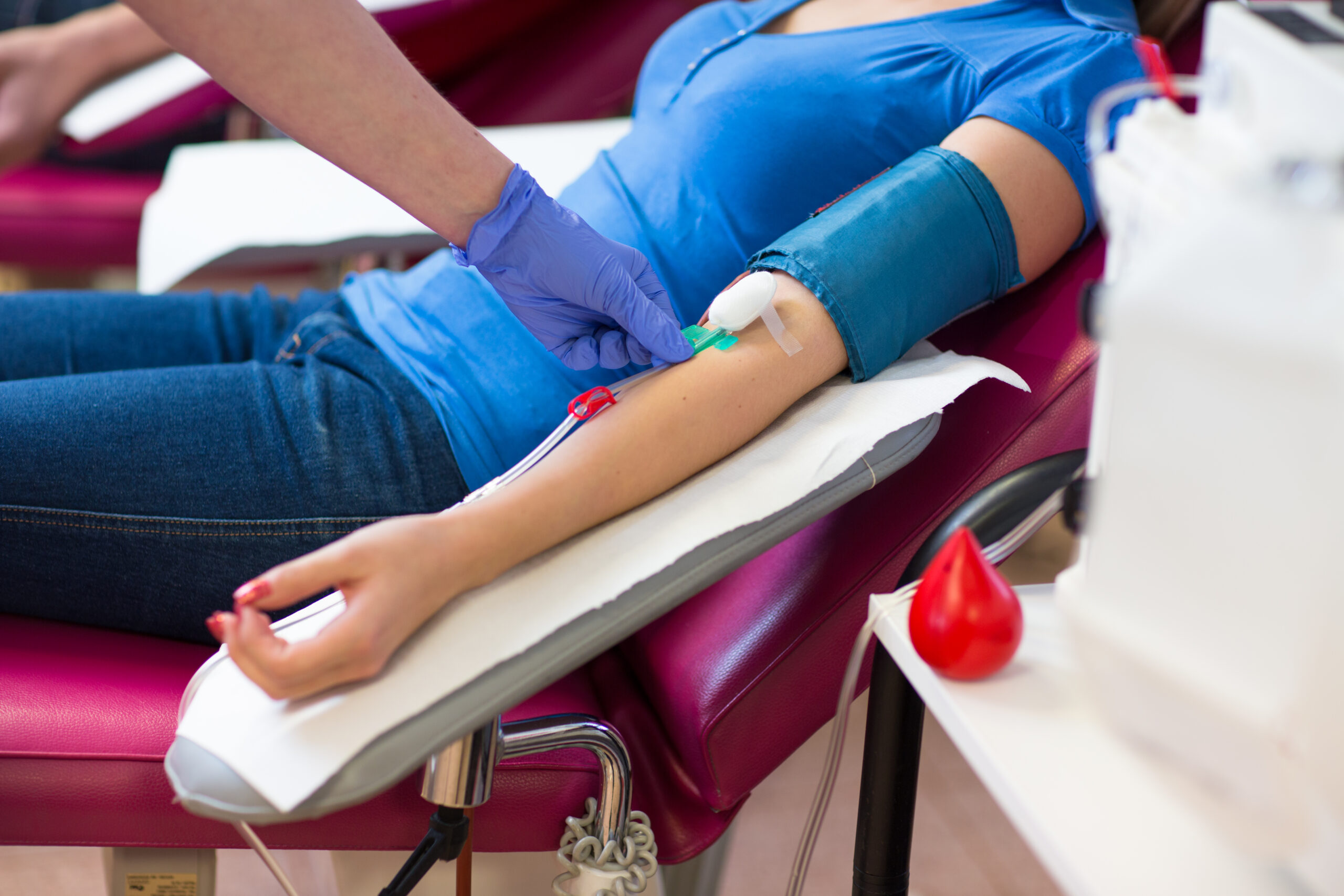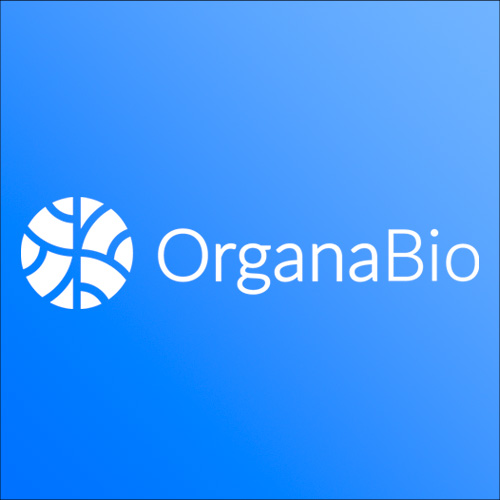OrganaBio is a leading supplier in the cell and gene therapy sector, providing scalable solutions from early development through clinical stages. Since its founding in 2018, OrganaBio has been dedicated to becoming a central resource for tissue sourcing, clinical sample processing, and contract manufacturing services for cell and gene therapy developers worldwide, using a data-driven approach to deliver tailored solutions to clients exactly where and when they are needed. From a base in Miami, Florida, OrganaBio provides a comprehensive range of products and services that cover the entire development life cycle. specializing in perinatal and adult peripheral blood tissues and focusing on meeting both research and clinical demands with high-quality, responsive cells. In this Q&A, OrganaBio’s Chief Executive Officer Justin Irizarry discusses the strategies and operational philosophies driving the company and how it plans to navigate future challenges and opportunities in the rapidly evolving cell therapy landscape.
David Alvaro (DA): Can you start by giving us a bit of history on OrganaBio, particularly focusing on its founding, the inspiration behind it, and the key milestones up to today?
Justin Irizarry (JI): OrganaBio was founded in 2018, inspired by the rapid advancements in cell and gene therapy emerging from top universities. While the technology and associated capital formation were impressive, we noticed a significant blind spot in the industry’s supply chain capabilities, especially from a scalability perspective, to allow the sector to realize its full potential.
We began by engaging directly with researchers, diving into their papers and discussions to understand the specifics of their work with cell technologies and the diseases they targeted. This exploration revealed a common theme: many researchers hadn’t considered how to scale their cell or tissue supplies as their projects expanded. The responses varied from not having thought about it to assuming the supply would somehow become available when necessary. This highlighted a critical gap in planning that we aimed to address.
Realizing the need for a dedicated supplier that could support these therapies from early development through clinical stages, we saw an opportunity to create a new kind of partnership in the biotech sector. Our strategy was to become a reliable partner, providing scalable solutions right from the start to help scientific developers to develop their technologies faster and move forward without any bottlenecks.
To implement this, we initially focused on collecting perinatal tissues like cord blood, placental tissue, and cord tissue. These are rich in a variety of cell types and typically discarded unless banked privately, which happens in only about 3% of all deliveries. We set up agreements with OBGYNs to collect these tissues, ensuring a sustainable and ethical source. This approach also allowed us to adjust quickly to the market’s changing demands, which could shift significantly based on new research findings.
One thing we saw as critical in really being a strong partner and solutions provider was to ensure we could meet our customers where they are in their program at any point in time. We wanted to be flexible enough to take on small and intermediate offers, unlike other suppliers who were uninterested in smaller programs. We felt that once we engaged with a customer and serviced the account well, it would naturally grow into a long-term relationship that could scale.
As we developed our supply chain for these tissues, we also prepared to meet more advanced needs by planning for clinical-grade production spaces. This foresight allowed us to offer a continuum of supply from research-grade to clinical-grade materials, which meant our clients wouldn’t need to switch suppliers as their programs advanced.
Parallel to the perinatal tissue program, we established a supply chain for adult peripheral blood, particularly focusing on immune cells like those from lymphoid and myeloid lines. We set up a donor collection operation, managed comprehensive donor screenings, and handled all processing in-house, which culminated in the production of LeukoPACs for various uses.
Our subsidiaries — GaiaGift for birth tissue and HemaCenter for peripheral blood — manage these operations, ensuring quality and compliance. When COVID-19 hit, it challenged our operations, but we focused intensely on building our infrastructure and our GMP lab, drafting SOPs, and enhancing our QA processes. This groundwork allowed us to start selling seriously in 2021, initially to smaller biotech companies.
By 2022, we recognized the necessity of engaging larger pharmaceutical companies as the biotech sector’s funding cycles became more volatile. This led us to tailor our services and products to the needs of Big Pharma, integrating more deeply into their clinical trial processes, such as through bespoke cell isolation and cryo-preservation services.
Today, OrganaBio is a fully integrated business, performing everything from donor recruitment to the production of clinical-grade materials, in-house. Our operations are located in South Florida and Southern California, which position us to meet and adapt to our partners’ evolving needs swiftly and efficiently. This comprehensive approach ensures that we can support our clients’ growth and scale effectively, aligning with our original mission to fill the industry’s supply chain gaps.
DA: Do you typically tailor your product offerings differently for large pharmaceutical companies compared with smaller customers?
JI: The distinction between our services for small customers and large pharmaceutical companies is quite pronounced, primarily due to the differing needs and stages of their projects. Small customers typically have more generic specifications because they are in the early stages of their projects. Often, they require small volumes, such as one to three LeukoPACs every eight weeks, to begin their research or small-scale trials.
In contrast, large pharmaceutical companies need products with very specific criteria. They require larger volumes and more precisely defined specifications. For example, they might need LeukoPACs or isolated cell vials from donors who fit specific health profiles — like a BMI between 25 and 35, male only, nonsmoker, Epstein-Barr virus negative, and so forth. The specificity doesn’t end there; because only a fraction of the general population might meet these criteria, we may need to screen 10 times as many potential donors to identify suitable ones.
Once we identify the right donors, we provide a comprehensive solution. We handle everything from donor recruitment and initial screenings to collecting and processing their tissues according to the exact specifications of the pharma customer. After processing, we send samples to the client for evaluation. Upon their approval, we continuously supply the specified products at intervals determined by their ongoing needs — whether that’s weekly, monthly, or quarterly, for periods extending 24–36 months or even longer, depending on whether the projects are under research-use only (RUO) or good manufacturing practice (GMP) conditions.
This detailed and tailored approach is something we pride ourselves on. It not only allows us to utilize our full capabilities but also ensures that our clients receive high-quality, reliable products. We strive to be seen as a trusted partner, consistently delivering to meet their specific and evolving requirements and ultimately helping them succeed in their critical research and development efforts.
DA: Do you view your location in South Florida as a strategic advantage for accessing a diverse donor pool, and are there any challenges that might prompt you to expand to other regions?
JI: The location certainly has its pluses and minuses. Initially, there were reservations about starting a biotech supply operation in South Florida, primarily because the bulk of the industry is concentrated in Northern and Southern California and the Boston area. However, this has turned out to be more of a positive than we initially anticipated.
The main advantage stems from the geographic concentration of our competitors, who are primarily located in the traditional biotech hubs. These areas can quickly become saturated, meaning a donor who provides tissue to one company is unavailable to another for periods extending up to two months. This creates a zero-sum situation where the regional donor pool is heavily tapped by competing demands.
In contrast, South Florida offers us access to a fresh, high-quality donor pool with less competition. The donors here are not as frequently solicited for leukapheresis or other tissue donations, which means we can secure high-quality, responsive cells that are essential for our operations. Our clients have noted the quality and freshness of the cells we provide, which reaffirms the benefits of our location choice.
The primary challenge, however, is visibility. Being in South Florida can sometimes mean we’re out of the immediate consideration set for potential clients who default to looking in more established regions like Boston. To address this, we’ve expanded our footprint by opening a facility in Orange County, California, which focuses on third-party cell isolation and cryopreservation. This strategic move not only places us closer to some of our current and potential clients but also enhances our visibility and presence in a key biotech hub.
Furthermore, we’re proactively working on improving our market communication and education efforts to boost our mindshare across the industry. Over the next few quarters, you’ll see a more aggressive approach from us in terms of establishing OrganaBio as a go-to partner in the field, ensuring that we are top of mind when companies need the services we offer. This proactive strategy is aimed at overcoming any locational disadvantages by making sure that when there is a need for our services, OrganaBio is the first call.
DA: How do you prioritize donor recruitment and retention, especially when needing to continue to draw from the same individuals as some programs progress?
JI: Maintaining a stable and reliable donor base is fundamental to our operations, especially as we cater to pharmaceutical clients requiring consistent supplies over prolonged periods. Our approach emphasizes the importance of building strong relationships with our donors, ensuring they feel valued and understand the impact of their contributions to medical research. This fosters a committed donor community whose involvement is crucial to advancing healthcare innovations. We are dedicated to upholding the highest standards of donor care and satisfaction, which in turn supports our ability to meet the exacting requirements of our clients and their groundbreaking work in cell and gene therapies.
DA: How does demand and hence your business currently break down between peripheral blood and birth tissue, and do you foresee that shifting in the near future?
JI: Each type of tissue serves distinct needs within the industry, and we have customers that source both.
The majority of our customers target blood and solid tumors or autoimmune diseases, and the industry is weighted toward cells and tissue from peripheral blood.
We also have customers that rely on CD34+ hematopoietic stem cells because of their pluripotent capabilities. However, sourcing these cells from bone marrow aspirate or through mobilization into peripheral blood is invasive and painful for donors. On the other hand, cord blood presents a viable, less invasive alternative that naturally contains CD34+ cells. This method doesn’t involve the painful procedures required for bone marrow aspirations or the extensive processing of mobilized peripheral blood. Given these advantages, I believe cord blood has significant potential to become a more prominent source of stem cells as the industry progresses and seeks more ethical and sustainable methods.
While peripheral blood is currently more prominent owing to its established applications and funding, the evolving landscape of stem cell research and increasing consideration for donor well-being could shift the balance further toward cord blood. It’s a more ethical, scalable option that could align better with future industry standards and patient care protocols.
Our focus remains on providing both options efficiently while anticipating and adapting to these changes in demand.
DA: How do you see the overall market for cell products expanding in the next decade, and how is the supply sector, and more specifically OrganaBio, prepared to meet this growth?
JI: We’re optimistic about the future of our sector. In biopharma, success tends to catalyze more success. For instance, when a drug gets approved or a new technology seems poised for approval, it naturally stimulates further interest, investment, and the inception of new companies. These new entities often seek partnerships with established firms like Big Pharma, creating a self-reinforcing cycle of innovation and growth.
Our outlook is also buoyed by the iterative nature of drug development. Similar to software updates, where each version aims to improve upon the last, drug developers continuously enhance their platforms and technologies. This ongoing process ensures a steady demand for high-quality biological materials, which OrganaBio is well-equipped to supply.
Moreover, as these evolving technologies begin to more effectively tackle complex diseases like various cancers and autoimmune disorders — areas where traditional small molecule drugs have only seen limited success — we anticipate significant long-term opportunities. OrganaBio is strategically positioned to support these advancements, not only meeting the current demand but also adapting to future innovations, thus securing our growth and an increasingly significant market share.
DA: Do you have plans to expand your product portfolio and services as new needs arise in the market?
JI: We’re actively preparing to evolve alongside the market’s demands, which means continuously developing new solutions well ahead of our customers’ needs. In addition to cells from healthy tissue, OrganaBio is also supplying cells from specialty and diseased donors, like lupus donors. This is a response to an anticipated shift in industry demands where tissues from donors with specific conditions will become increasingly sought after. This approach will have significant implications for how we structure our supply chain to accommodate these specialized needs.
On the services side, we’re expanding our capabilities in cell isolation and cryopreservation to support a growing number of clinical trials, especially those utilizing cutting-edge technologies like mRNA vaccines. These trials are increasingly conducted in diverse demographic areas, necessitating a regional expansion to provide localized support.
Additionally, we recognize a growing need among non-research hospitals, which are now starting to treat a significant number of cancer patients with advanced CAR-T cell therapies and other novel therapies. Many of these hospitals lack the necessary infrastructure to manage these treatments effectively in-house. OrganaBio is positioning itself to partner with these institutions to provide essential services like apheresis, cryopreservation, and cell isolation, enabling them to treat their patients onsite without needing to build these capabilities themselves.
These strategic expansions are designed not just to grow OrganaBio’s footprint but to ensure that we remain at the forefront of supporting both current and emerging therapeutic approaches in a dynamically evolving healthcare landscape.
DA: As you’ve developed your end-to-end supply chain, have you formed any alliances that have helped extend your reach, or have you largely been able to maintain operations independently?
JI: We tend to control as much of our process as possible because it allows us to enhance both the speed and quality of our operations while reducing cost and risk for our customers. While we handle the majority of our operations in-house, we outsource certain specific tasks, such as donor infectious disease testing. There are advantages to having third-party validation for some aspects of our products, which provides an external assurance of quality, which is valuable in our industry.
However, there are specific areas, particularly in obtaining specialized or disease-specific tissues, where we might need to collaborate with other entities to ensure access. These partnerships are strategic and based on necessity, particularly when sourcing from geographical locations or patient demographics that we cannot reach independently.
Maintaining a high degree of independence is strategic for us, ensuring resilience and stability in our supply chain. The most critical aspect of our operation is our donors. Ensuring their satisfaction and continued engagement is paramount, as their contribution is fundamental to our entire operation. We dedicate significant resources to ensuring that our donors feel valued and are comfortable and committed to long-term contributions.
DA: Beyond your products and services, are there cultural or value differentiators that you see as critical to the company and its success?
JI: Establishing a strong, resilient culture has been crucial for OrganaBio. From the beginning, our goal was to create an environment that fosters open communication and mutual respect among all team members. This flat organizational structure ensures there are no gatekeepers in communication, allowing for fluid idea exchange and collaboration across all levels.
Our team understands the ‘why’ behind their work, which is a powerful motivator. They know they’re not just doing a job; they’re contributing to significant medical advancements that could change lives. This understanding is critical, especially when facing the inevitable challenges and setbacks inherent in our industry.
Transparency and communication are pillars of our customer service philosophy. We proactively address any issues that arise, offering solutions to our customers and maintaining open lines of communication. This approach has been well-received by our clients, distinguishing us from competitors who may not be as forthcoming or tardy in communicating problems to their customers.
Moreover, we emphasize hiring individuals who not only have the necessary skills but also the right attitude and work ethic. This has created a workplace where each team member is genuinely invested in our collective success. We also focus on career development, ensuring that our employees grow along with the company. This commitment to internal growth builds a loyal and motivated team prepared to handle the demanding aspects of our work.
In essence, OrganaBio thrives on a culture of dedication, respect, and continuous improvement, which not only enhances our operational effectiveness but also ensures we remain a formidable player in the biotech field. We are proud of this culture and the way it empowers both our team and our contributions to healthcare.





